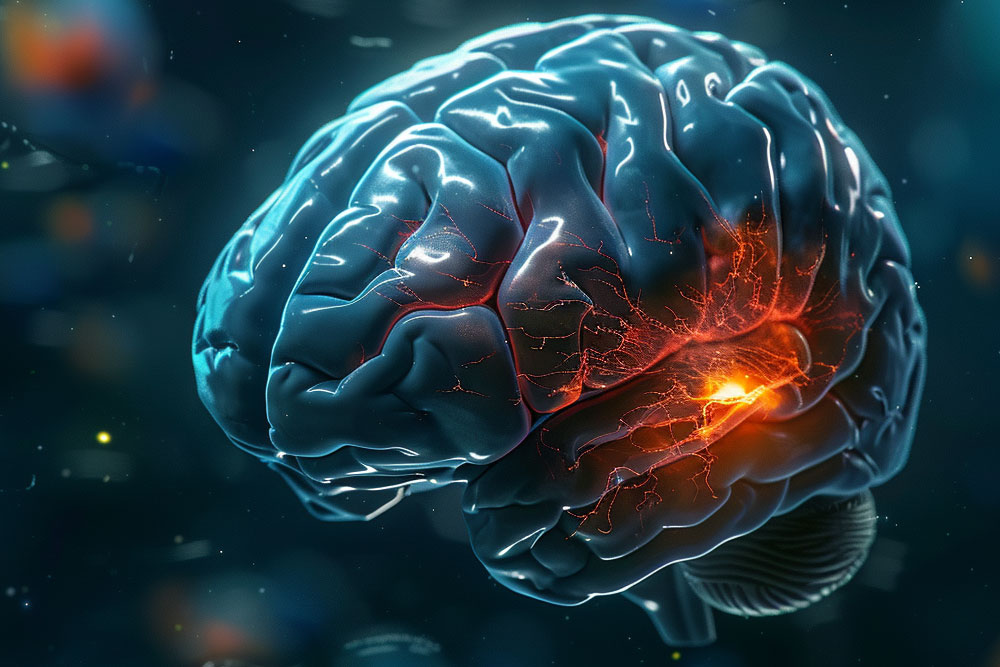Personality Development
Can't Relax? 5 Effective Ways to Reduce Stress in Your Life
Scientifically proven methods to take back control of your mood.

Decades ago, distinguished researchers decided to study the impact of stress on humans. Not surprisingly, they discovered that stress is one of the main factors leading to the outbreak of physical and mental illnesses. Nonetheless, the researchers hoped that with the advancement of science and technology, stress would decrease. Unfortunately, almost 100 years after the first study on the subject, and despite incredible technological progress, we are more tense and stressed today than ever before.

Nice to Meet You - Amygdala
Let's begin by trying to understand what stress is and how it affects the body. Stress is the body's and mind's response to external or internal stimuli. These stimuli can be positive (like a promotion at work) or negative (like losing a job). The amygdala is a small area in our brain that plays a central role in processing emotions, particularly anxiety and fear. When we experience stress, the amygdala quickly evaluates the potential danger and acts accordingly. It causes the release of hormones like adrenaline and cortisol, which increase the "fight or flight" response, and is responsible for physical symptoms such as increased heart rate, high blood pressure, sweating, and shaking. Interestingly, smartphones, especially endless scrolling through news or social networks, cause constant stimulation of the amygdala and trigger it into action.

You Can Relax
A stressed person will usually receive advice from others or their doctor such as: "Try to relax, go get a massage, drink herbal tea." While these tips may help, they are only short-term solutions. In the long term, more profound changes are needed to reduce stress. Recent studies have identified five main areas to focus on to reduce pressure and stress.
1. Breathing
Deep and conscious breathing is one of the best ways to calm the body and mind. When we feel stressed, our breathing becomes shallow and fast, increasing anxiety. Deep breathing allows us to slow down the heart rate, lower blood pressure, and feel more relaxed. To make this tool effective in the long term, focus on breathing several times a day.

2. Movement
Stress tends to accumulate in the body. Some of us will feel tight shoulders, while others may have back or head pain. Physical activity is an excellent way to release pent-up energy and improve mood. Even a short walk or light stretches can make a significant difference. A study at the University of California led by Dr. Jennifer Cook and Dr. James Zhang examined the impact of a short walk (5-10 minutes) on the mood of healthy adults. The study found that a short walk significantly improved mood and cognitive performance. Interestingly, the positive effects of walking continued for up to 30 minutes after the activity ended.

3. Sleep
Lack of sleep can lead to fatigue, irritability, and difficulty concentrating, which can worsen stress. Maintaining a regular sleep routine and getting enough sleep (7-8 hours) is crucial for mental and physical health. To achieve this, Dr. Aditi Nerurkar suggests setting a specific time for smartphone use and avoiding it an hour before sleep. Additionally, she advises turning off notifications and limiting time spent on social media.
Dr. Nerurkar explains that smartphones overstimulate the amygdala. They continuously "bombard" us with information and stimuli through notifications, social networks, and games. This overstimulation triggers the amygdala to secrete cortisol and adrenaline, which can lead to mental fatigue, concentration difficulties, and increased anxiety levels.
Dr. Nerurkar notes that social media is full of pictures and videos of others often showcasing their best lives. This constant comparison may lead to feelings of dissatisfaction, jealousy, and self-esteem issues, increasing amygdala activity and causing significant stress.

4. Nutrition
Recent studies over the last decade have revealed a close connection between a person’s diet and their mood and energy levels. Many studies point to a mutual relationship between gut bacteria and our mood, as well as between digestive system function and our emotions. Simply put, there are "good" and "bad" bacteria. "Good" bacteria contribute to good health, while "bad" bacteria can cause diseases and various health issues, including mood problems.
The digestive system is directly connected to the central nervous system through the "gut-brain axis". This axis allows for mutual communication between the brain and the digestive system, influencing the function of both systems. Poor mood can negatively affect the digestive system, leading to problems such as constipation, diarrhea, stomach pains, and bloating. Conversely, a healthy digestive system contributes to good mental health.
A healthy and balanced diet, rich in fruits, vegetables, whole grains, and lean proteins, can help reduce stress and anxiety. To make it a permanent change, it should be done gradually and not as a drastic and quick shift.

5. Mindfulness
Mindfulness, also known as awareness, is a technique that allows us to become more aware of our emotions and thoughts in the present moment, without judgment. Practicing mindfulness can help us deal with stress more effectively by paying attention to the thoughts, emotions, sensations, and experiences that arise within us without trying to escape them.
While mindfulness can be practiced through meditation or yoga, the easiest method is simply paying attention to the here and now during regular activities like walking, eating, or even working. For example, when walking, one should walk with full attention to the steps, breathing, and environment. During eating, take time to savor the taste, texture, and aroma of the food.
Implementing small, consistent daily steps in these five areas has been scientifically proven to reduce stress.
Know of more ways? Share with us in the comments.

